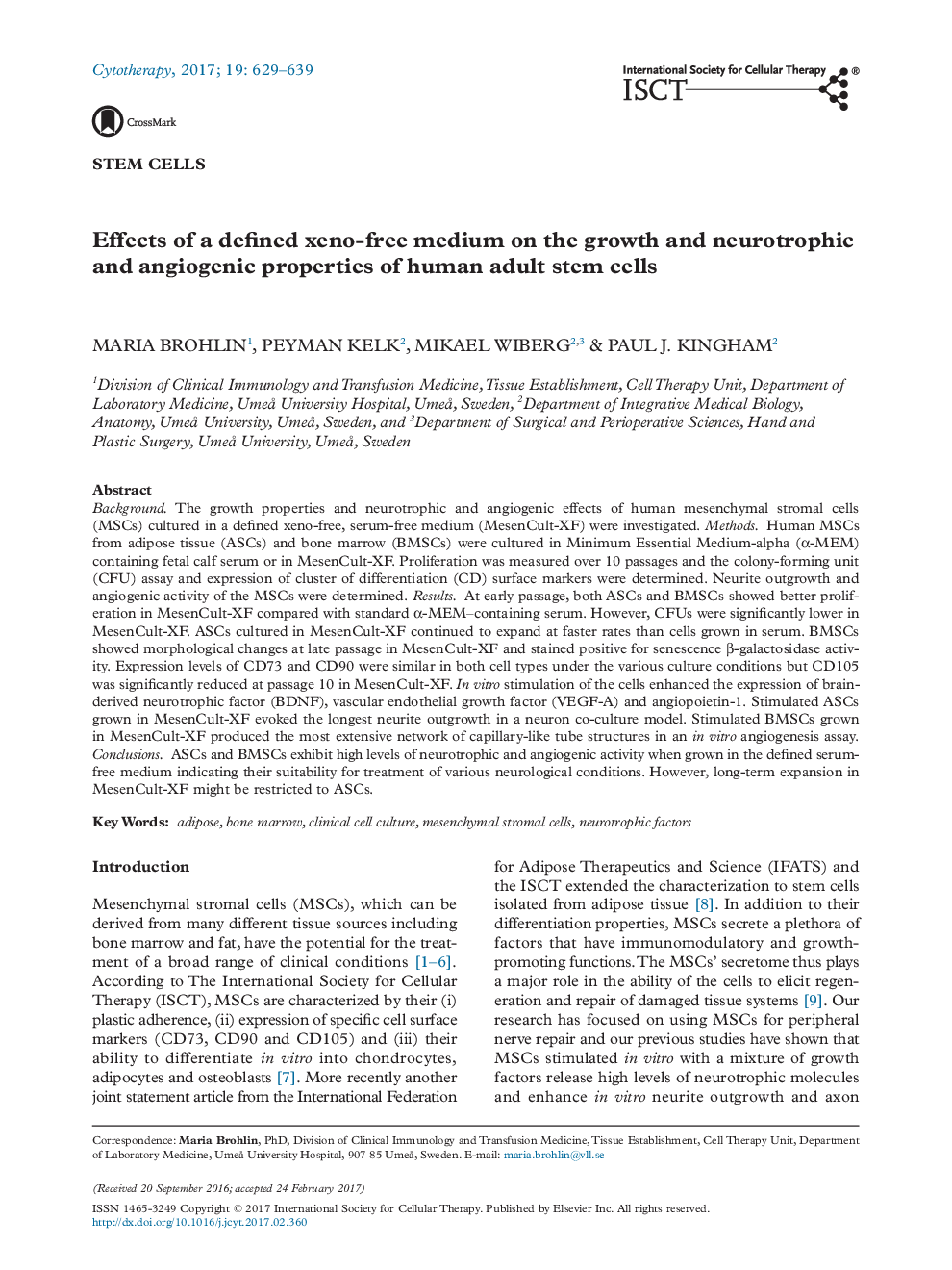| Article ID | Journal | Published Year | Pages | File Type |
|---|---|---|---|---|
| 5531428 | Cytotherapy | 2017 | 11 Pages |
BackgroundThe growth properties and neurotrophic and angiogenic effects of human mesenchymal stromal cells (MSCs) cultured in a defined xeno-free, serum-free medium (MesenCult-XF) were investigated.MethodsHuman MSCs from adipose tissue (ASCs) and bone marrow (BMSCs) were cultured in Minimum Essential Medium-alpha (α-MEM) containing fetal calf serum or in MesenCult-XF. Proliferation was measured over 10 passages and the colony-forming unit (CFU) assay and expression of cluster of differentiation (CD) surface markers were determined. Neurite outgrowth and angiogenic activity of the MSCs were determined.ResultsAt early passage, both ASCs and BMSCs showed better proliferation in MesenCult-XF compared with standard α-MEM-containing serum. However, CFUs were significantly lower in MesenCult-XF. ASCs cultured in MesenCult-XF continued to expand at faster rates than cells grown in serum. BMSCs showed morphological changes at late passage in MesenCult-XF and stained positive for senescence β-galactosidase activity. Expression levels of CD73 and CD90 were similar in both cell types under the various culture conditions but CD105 was significantly reduced at passage 10 in MesenCult-XF. In vitro stimulation of the cells enhanced the expression of brain-derived neurotrophic factor (BDNF), vascular endothelial growth factor (VEGF-A) and angiopoietin-1. Stimulated ASCs grown in MesenCult-XF evoked the longest neurite outgrowth in a neuron co-culture model. Stimulated BMSCs grown in MesenCult-XF produced the most extensive network of capillary-like tube structures in an in vitro angiogenesis assay.ConclusionsASCs and BMSCs exhibit high levels of neurotrophic and angiogenic activity when grown in the defined serum-free medium indicating their suitability for treatment of various neurological conditions. However, long-term expansion in MesenCult-XF might be restricted to ASCs.
